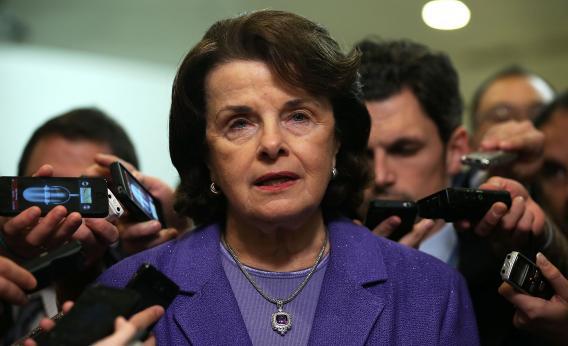Byron York has pulled out the stops to find proof that Democrats are engaging in hypocrisy on the debt limit. Part one: This piece, from yesterday, about the Democratic leaders who want the president to raise the limit without negotiating with Congress.
On March 16, 2006, the Senate held a vote on a measure to raise the debt ceiling by $781 billion — the fourth such vote of George W. Bush’s presidency. Republicans controlled the Senate, and Democrats spent much of the debate railing against Bush’s spending. “When it comes to deficits, this president owns all the records,” said Reid. “The three largest deficits in our nation’s history have all occurred under this administration’s watch.”
Declaring themselves outraged by such spending, Reid, Durbin, Schumer, and Murray all voted against raising the debt limit.
This is a popular Republican attack line, but it sort of hangs in the air pointlessly. Democrats cast those no votes knowing that the debt limit would be increased anyway. That’s been the pattern for years – the party in power votes to hike the limit, and the party out of power got to cast message votes against it. (Rick Santorum learned this when, grasping for an issue with which to club his unexpected rival, Mitt Romney made a scandal out of Santorum’s debt limit votes.) Right now, Democrats aren’t bristling at the idea that Republicans will oppose the debt limit increase. They’re bristling at the Republicans who say 1) they want spending cuts for every dollar of debt limit padding and 2) heck, maybe it wouldn’t be so bad if we hit the limit.
York’s second article – “Actually, Democrats have threatened to hold the debt limit hostage” – gets much closer to the target.
It happened in 2009, when Democrats controlled the Senate and a group of influential lawmakers, led by Sen. Dianne Feinstein, were deeply concerned about big increases in entitlement spending. Feinstein and others wanted to see the creation of an independent entitlement commission, roughly based on the earlier military base closing commission, to enact cuts in entitlement spending.
This is a good catch. At the time, my future colleague Matthew Yglesias dubbed Feinstein, Kent Conrad, and Evan Bayh the “Irresponsible Threat Caucus.” But the comparison remains flawed.
1) Feinstein et al didn’t make real demands. The whole commission idea was a poll-testable punt in the spirit of the old “just vote against the debt limit even though it’ll pass” bargain. Had they succeeded, there would have been some discussion of entitlement cuts, which Democrats are generally against. The Republicans currently demanding concessions on the debt limit have pre-determined that the money must come from budget cuts and revenue-neutral tax reform. As Mitch McConnell has put it, “revenue is over,” and there will be no discussion of higher taxes to fight the deficit. They will use the debt limit leverage to get thinks Republicans want but can’t get through normal budgeting.
2) Feinstein et al weren’t party leaders, and couldn’t realistically threaten to do this. The current “cuts for a debt limit hike” theory is called the “Boehner Rule” because John Boehner wants it to happen. Whatever leverage they actually have, it’s backed by the determination of a leader to only move on a package supported by 218 (or more) members of his conference.
